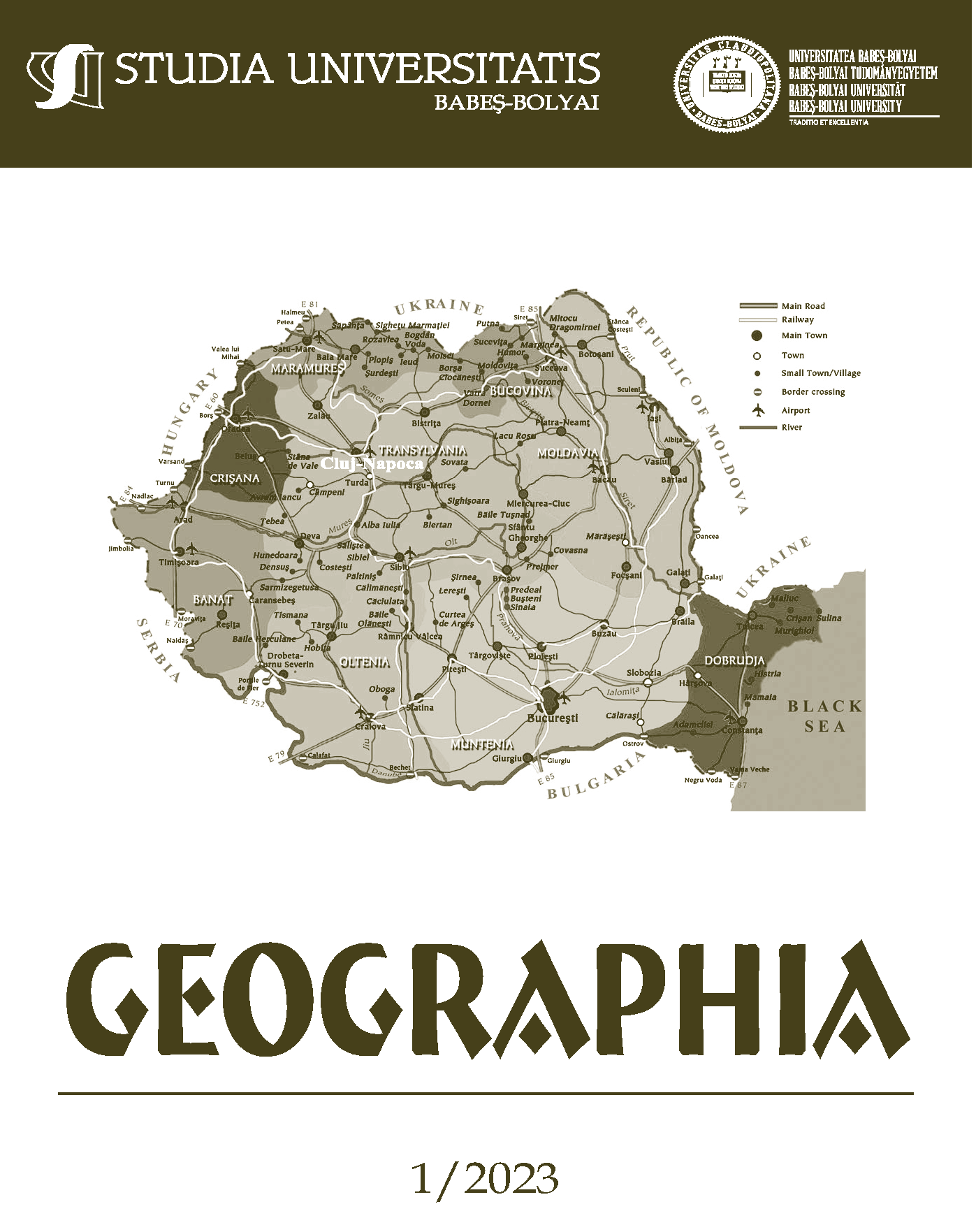THE REFLEXIVE APPROACH TO TRUTH IN HUMAN GEOGRAPHY: LESSONS FROM PROFESSOR VIRGIL-ACHILES GÂRBACEA
DOI:
https://doi.org/10.24193/subbgeogr.2023.1.06Keywords:
truth, weakness, human geography, critical approach, knowledge, Romania.Abstract
This paper presents an Interview with the renowned Professor Virgil-Achiles GÂRBACEA, one of the very few visionaries who have understood and embraced the new research paradigms recognized at the international level within the scientific spectrum of Geography. Designed within a matrix of semi-open collaboration, the research questions aimed to explore the professor’s perspective on the nature, perception, and construction of truth and weaknesses within human geography and within the specific context of Romania. The professor emphasized the importance of a critical and reflexive approach to the concept of truth in the field of human geography. He highlighted that truth and its weaknesses in this context are influenced by multiple social, cultural, and political variables. Furthermore, the professor acknowledged that human geography is a constantly evolving discipline, and understanding truth in this field requires a dynamic perspective and adaptability to societal changes. We underscore that the issue of truth and its weaknesses in this field is complex and fluid, and comprehending it necessitates a critical, contextualized, and open approach to dialogue. Additionally, a reflexive approach to the social and political construction of truth within the specific context of Romania is essential.References
Biblical Archaeology Society, (2022), Herod’s Death, Jesus’ Birth and a Lunar Eclipse, available at: https://www.biblicalarchaeology.org/daily/people-cultures-in-the-bible/ jesus-historical-jesus/herods-death-jesus-birth-and-a-lunar-eclipse/, (acc: 06. June 2023).
Brown, D. (2003), The Da Vinci Code, Doubleday.
Fischer Weltalmanach Redaktion (2014), Der neue Fischer Weltalmanach, Fischer Taschenbuch Verlag, Frankfurt.
Gârbacea, V.-A. (1956). Dealurile Bistriței. Studiu geomorfologic (The Bistrița Hills. Geomorphological study), Faculty of Natural Sciences-Geography, Ph.D. thesis.
Ilovan, O., Dulamă, M. E., Nicula, Al.-S., Benedek, R., Păcurar, B., & Răcăşan, B. (2019), Assessment of the Regional and Human Geography Curricula at Babeș-Bolyai University, In V. Chis, & I. Albulescu (Eds.), Education, Reflection, Development – ERD 2018, vol 63. European Proceedings of Social and Behavioural Sciences (pp. 339-348). Future Academy, available at: https://www.europeanproceedings.com/article/10.15405/epsbs.2019.06.42
Josephus, F. (2018). The Jewish Wars: History of the Jewish War and Resistance against the Romans, Simon & Brown House.
Kleinknecht, K., (2019), Einstein and Heisenberg: The Controversy Over Quantum Physics, Springer.
Mainstream (2022), Albert Einstein on God, in his letter to Erik Gutkind (1954), vol. 60, no. (50-51), available at: https://mainstreamweekly.net/article12625.html, (acc: 06. June 2023).
Myers, R.J. (1972). Celebrations: The Complete Book of American Holidays, Doubleday & Company Books.
Oldale J. (2012). Doktor Oldale geographisches Lexicon, Hamburg: Rowohlt Taschenbuch Verlag.
Paulkovich, M. (2014), “Jesus NEVER existed”: Writer finds no mention of Christ
in 126 historical texts and says he was a “mythical character”, available at: https://www.dailymail.co.uk/sciencetech/article-2776194/Jesus-never-existed-Writer-finds-no-mention-Christ-126-historical-texts-says-mythical-character.html, (acc: 06. June 2023).
Villa-Vicencio, C., (2021), Living between Science and Belief: The Modern Dilemma, Wipf and Stock Publishers.
Zuckerman, P. (2007), Atheism: Contemporary numbers and patterns, in Martin, M. (ed.), The Cambridge companion to atheism, Cambridge University Press.
Downloads
Published
How to Cite
Issue
Section
License
Copyright (c) 2023 Studia Universitatis Babeș-Bolyai Geographia

This work is licensed under a Creative Commons Attribution-NonCommercial-NoDerivatives 4.0 International License.





 ©Studia Universitatis Babeş-Bolyai Geographia. Published by Babeș-Bolyai University.
©Studia Universitatis Babeş-Bolyai Geographia. Published by Babeș-Bolyai University.